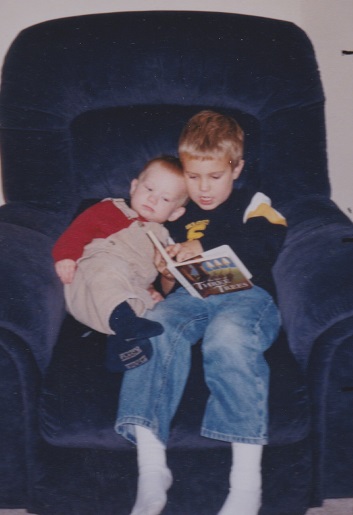good writing wednesdays
02.02.2016

I love a good New Year’s Resolution. I’ve had
thousands over the years. Because I’m an over-aspirer, I like to set
Sunday night resolutions before I go to bed: this week I’m going to lose
10 pounds, write some killer dialogue and redecorate the living room in
something bold.
We’re a month in to the New Year, and I’m pleased to report that I’ve
kept my resolution. Although it sounds simple, keeping it has been
difficult. The resolution is boring and old-fashioned and wouldn’t grace
the cover of any magazine, except maybe Oprah’s.
In 2016, I’m going to read more.
As a writer, reading is like doing research. It’s
how you learn what works and develop an appreciation for things like
word choice and sentence structure. But in this frenetic world of doing
too much and being too busy, reading seems hedonistic. Self-indulgent.
When people find out you sat down to read in the afternoon, they give
you the “must be nice” look. Somehow it’s more acceptable to spend the
hour scrolling through Facebook than parsing a seamless paragraph.
But reading for enjoyment is a return to my roots.
When I was young, my mom parked me and my brothers
at the dining room table for lunch (grilled cheese sandwiches and tomato
soup), then open the closet door where the record player sat. We would
listen to a scratchy rendition of a Disney album (Aristocats) over and
over. The voices of those silly geese are still in my head.
My parents read to us, out loud, so I carried on
the tradition. Almost every night of their little lives, my boys were
read to. Sometimes hubby was in one room and I was in the other, reading
about pirates or Elmo or making up words to “Good night Gorilla.” We
listened to books on tape in the car, and they listened to stories in
their rooms in the afternoons. The result of this tradition surprised me
the day Son A said “See that girl over there? That’s what I picture
Sheila Tubman from Judy Blume’s books would look like.”
But now I’m worried that the reading thing is going
away for kids, in favor of screens. I recently learned of the University
of Wisconsin Pediatric Early Literacy Project, focused on making books
accessible and the promotion of reading a routine part of health care.
Physicians involved in the group hand children a book during a regular
exam and see how the child reacts. Does he/she know how to hold it? Know
that it goes from left to right? They understand the importance reading
plays in development:
“Reading,
rather than being simply a “nice activity” or a developmental stage,
allows humans to access, understand, and derive meaning from
information. Even in our modern, digital society, the most efficient and
effective conveyor of ideas is text. Children fluent in the language of
television, DVDs, computer games, and the Internet, but not fluent in
the decoding of text, will have difficulty learning.”
I think we’ll soon see the consequences of this.
I’ve heard educators say that due to so much time in front of screens,
primary school students have very little imagination, self-control or
patience. Harried and overtaxed parents hand their children their phones
just to get through the grocery store, or turn on the minivan DVD to
have a rare minute to think. Life is hard enough without bickering in
the back seat.
But I worry about the damage done. I see little
folks at basketball games staring at a screen instead of watching the
game, studying their favorite player or just looking at all the faces in
the gym. To hand them a screen in the midst of all that humanity is to
take away their ability to soak it all up. Especially the under-five
set, when every experience creates an impressionable synapse and a
lifelong learning path. They’ll recall basketball games - or reading
about basketball – much more than they’ll remember being pacified with
an app. Being read to in somebody’s lap, feeling their warmth and
hearing their voice, should be a necessity for all children, not a
treat. It should be as common as lunch.
As my own kids have grown, I’ve tried to keep tabs
on their appreciation for the written word in new ways. I’ve tried “Good
Writing Wednesdays,” where I read them a sample of something written
really well. They balk, I ignore. We still listen to audiobooks in the
car, and although they make fun of me, Son B can still recite the best
line from Kathryn Stockett’s The
Help: “You is kind, you is smart, you is important.”
Oh, I’ve led them astray in all sorts of other
ways. But the reading? I’ll never regret a minute.

